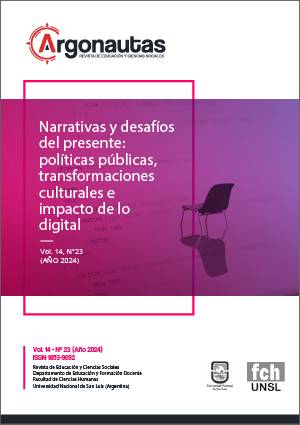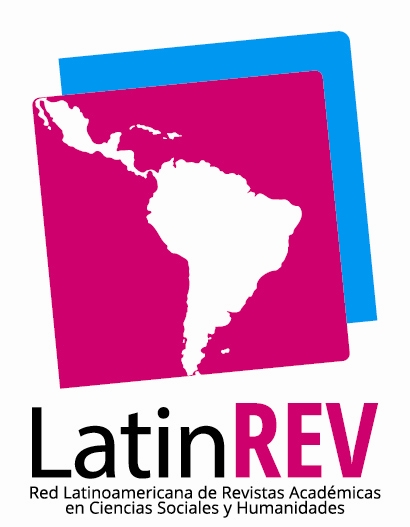The period style in Mendoza from the 70s to the 90s: from marginality to professionalization
Keywords:
interpretation, period style, music, Mendoza, professionalizationAbstract
This work deals with the evolution of a particular artistic field: that of the performers in Mendoza dedicated to the performance of preclassical styles, in connection with the movement called historically informed interpretation, or Period style. This research focuses on activities that began in the 70s, carried out by four performers, continuing with the gradual growth of the field in terms of projects, musicians, instruments and spaces of representation, during the 80s and 90s. This field is characterized in Mendoza at an initial moment linked to pedagogical - and later artistic - search outside the institutions, in a deliberate and almost complete marginality. Then, the examination of the historical journey demonstrates a gradual insertion into the institutional cultural circuit of the province and into the academic training spaces, in a clear trend towards professionalization. This is how the activities of groups such as Capella Iuvenilis, Parthenia, Vocal 1500, among many others, become visible, and how the path of historically informed interpretation in Mendoza is assimilated to a global trend with local particularities. This work is the product of two internal research projects of the School of Arts and Design, carried out between 2011 and 2022 under my direction, and together with teams made up of teachers, graduates and students of Music Training Tracks of the School of Arts and Design of the National University of Cuyo.
Downloads
References
Blanco, Mercedes (2011). “El enfoque del curso de vida: orígenes y desarrollo”, en Revista Latinoamericana de Población, 5(8), Asociación Latinoamericana de Población, 5-31. Recuperado de: https://revistarelap.org/index.php/relap/article/view/194 (12/08/2024).
Bourdieu, Pierre (2012). La distinción. Criterios y bases sociales del gusto. Madrid: Taurus
--------------- (2010). El sentido social del gusto. Buenos Aires: Siglo XXI.
Dart, Thurston (2002). La interpretación de la música. Madrid: Machado Libros SA.
Haynes, Bruce (2007). The End of Early Music: A period performer´s History of Music for the twenty-first century. Nueva York: Oxford University Press.
Guembe, María Gabriela (2016). “La interpretación musical históricamente informada en Mendoza (años fundacionales: de los ’70 a los ’90”, en Revista Huellas. Búsquedas en Artes y Diseño, 9, Facultad de Artes y Diseño de la Universidad Nacional de Cuyo, 35-43. Recuperado de: https://bdigital.uncu.edu.ar/8665 (12/08/2024).
--------------- (2013). “Antecedentes de la interpretación históricamente informada en Mendoza”, en Actas de la X Semana de la Música y la Musicología y Jornadas interdisciplinarias de investigación, Facultad de Artes y Ciencias Musicales. UCA. Buenos Aires. Recuperado de: https://repositorio.uca.edu.ar/handle/123456789/865 (12/08/2024).
Lopez Cano, Rubén (2000). Música y retórica en el barroco. México: UNAM.
Musri, Fátima Graciela (2009). “Notas para pensar una Historia regional de la música” en Murad y Saavedra (coords.), Artes en cruce: problemáticas teóricas actuales. Buenos Aires, Facultad de Filosofía y Letras, Universidad de Buenos Aires, 305-320.
Waisman, Leonardo (2005). “Música antigua y autenticidad: ideología y práctica”, en Cuadernos de Música Iberoamericana, 10, Madrid, Instituto Complutense de Estudios Musicales, 255 - 268.







